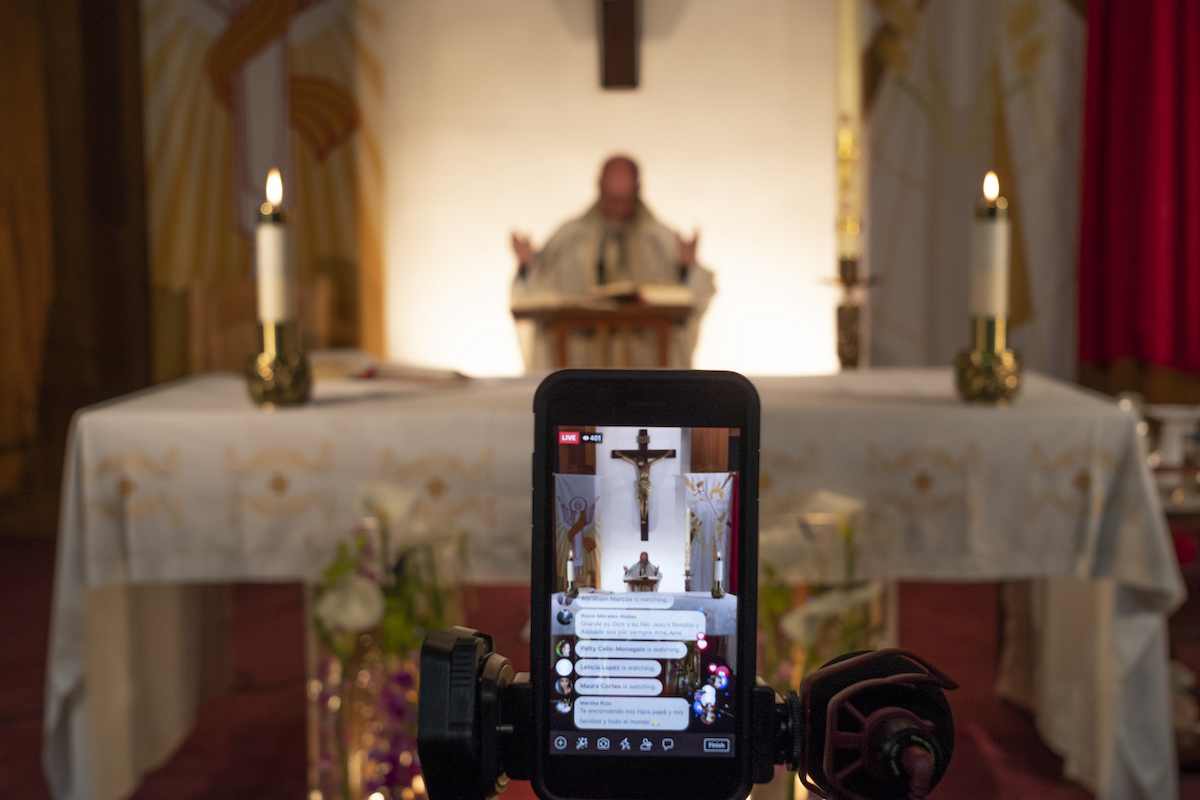I love watching men’s college basketball. Three games come to mind that I’m so thankful to have seen on TV—Chris Jenkins’ buzzer beater to lift Villanova over North Carolina in 2016, Christian Laettner’s dagger to catapult Duke past Kentucky in the Elite Eight round of 1992, and the heave of Derrick Whittenberg of North Carolina State, which his teammate Lorenzo Charles grabbed and dunked to beat Houston for the 1983 National Championship. I didn’t see any of these infamous games in the flesh, but I’m so thankful that I got to see them remotely—in three different living rooms, the first in Denver, the second in Boulder, and the last in Wilmington, Del.
I would have loved to have seen those games in person, but I couldn’t. Still, each game continues to have powerful meaning for me, even though I saw all three on non-UHD TVs. That I saw them, even remotely, allows me to share the memory with others—a community benefit! “Can you believe Jenkins made that shot?” “Laettner was always clutch!” “Whittenburg to Charles—now that was a Goliath slayer.”
In her opinion piece in The New York Times, Tish Harrison Warren gives several reasons to end online worship outright. Summarized they are (1) we are bodies and should engage all our senses; (2) the risk of being separated from others is greater than the risk of COVID, at least now; (3) we need embodied community; and (4) gathering in person forces us to deal with people who are different from ourselves.
I agree with all those points. What must be realized about online worship, however, is that it is additive in its congregational function. It does not replace in-person worship. It provides an option for people to engage with their community when they cannot be physically present within it—whether they’re sick at home, on vacation, or, yes, whether they drank a bit too much the night before. The church at her best has never been in the game to force someone’s hand. Rather, because Jesus disperses his gifts abundantly and graciously, we’re given the blessing of doing the same. It is his church, and we’re in no position to withhold the gifts he gives for everyone.
At this point a disclaimer may be helpful about what I think worship is. Because I’m a Lutheran Christian, I believe worship is first and foremost an act of God, hence the liturgies for Holy Communion in our hymnal are entitled Divine Services: God comes to serve his people through his means of grace, declaring them forgiven by the power of his Word!
For those who know anything about Lutheranism, one might be surprised that I don’t agree with Ms. Warren. After all, Lutheranism confessed in the 16th century and still does that in the Lord’s Supper and in Holy Baptism, God conveys and delivers His forgiveness through means—something tangible in person. In the case of the Lord’s Supper, Jesus gives us his body and blood through the bread and wine for the forgiveness of sins. Similarly, in Holy Baptism the Word-drenched water buries all original sin, and sins, in the tomb of Christ. In absolution, the embodied pastor forgives God’s people in the stead and by the command of Christ. For Martin Luther and those after him, the means of grace were central to how God acts in our life: They are tangible elements bringing God and his hard-earned, gracious love right before our eyes.
So, because worship is first and foremost about God coming to us through his Word, where a person receives that Word is not essential; the Word does not lose its power in its transmission through airwaves or electrons. Recall what the Apostle Paul says in Romans 10:17: “So faith comes from hearing, and hearing through the word of Christ.” This is not anti-sacramental; this is letting the means of grace be vehicles of delivering the gospel and not law-bound barriers. Just because I’m at home hearing the gospel and cannot receive the body and blood of Christ from my pastor in person does not diminish the effect of hearing his absolution on my iPhone. The means of grace are gifts and delivered all together and in part. Their effect is equal, whether all together or in part.
Online services overcome the barrier of distance and offer fellowship of a kind, one not defined by proximity but by confession of faith, which is the core of fellowship. Recently, a new couple in our congregation had to travel to Colorado to care for a dying relative. They went not knowing when they would return. It turns out they were away from our congregation for about six weeks. They participated in the service online each week and offered invaluable feedback about how they could best follow along. Currently, several people in our congregation are battling cancer; their plan of care forbids them to leave their home. I’ve heard from each how meaningful it is to participate in the Divine Service from afar—even without Communion, which I’ve been able to take to them in person at other times. What they appreciate most is the music of the liturgy and the hymns. Finally, several families have gone on vacation and upon return have commented how meaningful it was to worship with “their church” from a distance.
In the parable of the sower found in the gospels of Matthew, Mark, and Luke, the sower just throws seed on the ground, caring little for the ground’s constitution. Most of the seed fails to fall on good soil and so doesn’t grow into a healthy plant. The seed that does find good soil, however, grows accordingly. The point is clear: Get busy spreading the Word of God—in person or online—and let God prepare the soil. Some seed will sprout into healthy beautiful plants, just like some shots are buzzer beaters!

